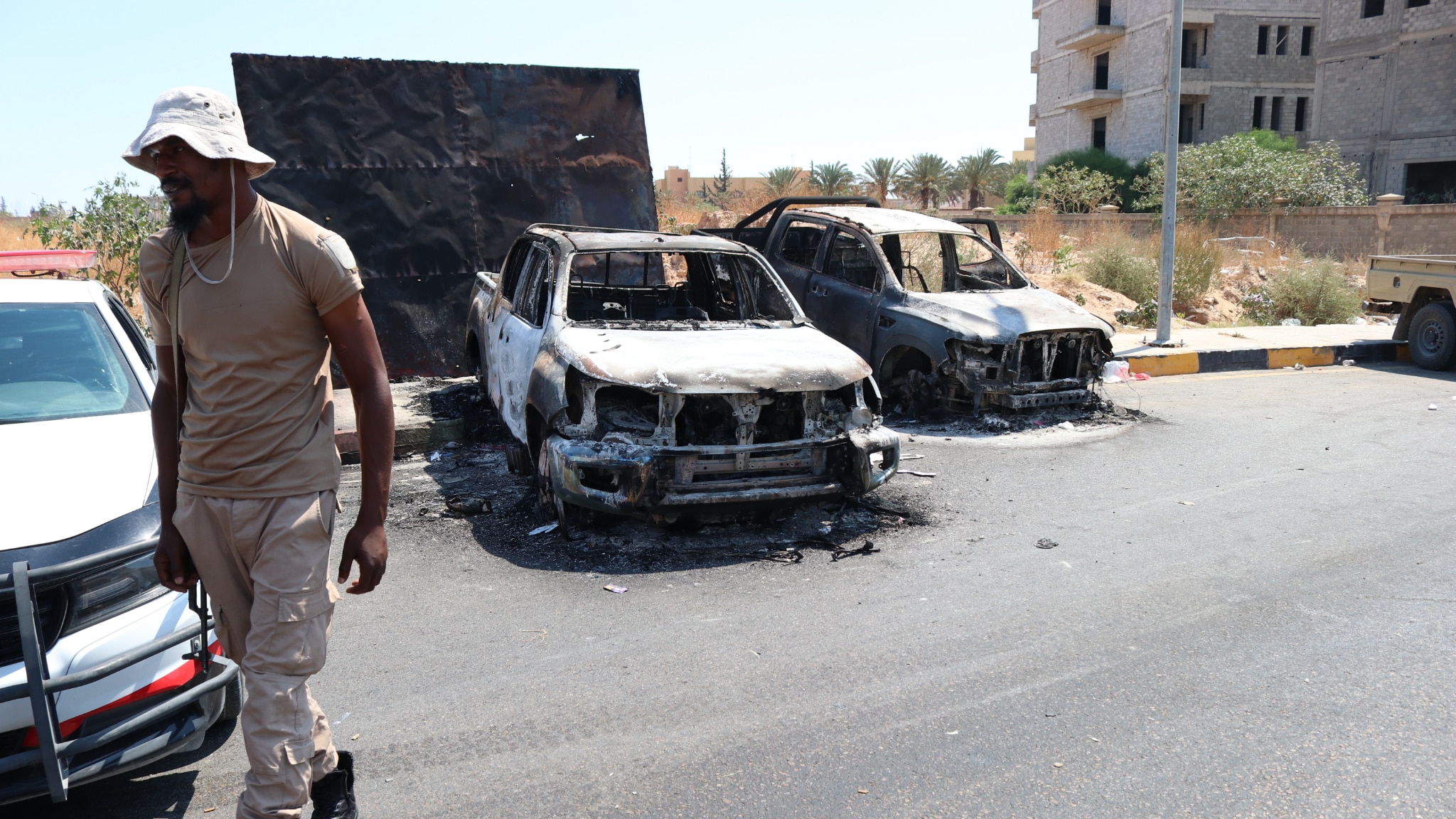More violence in Libya in the most serious clashes of the last two years between militias in the Libyan capital, where civilians are also victims.
In the background, the growing political tension caused by the Dbeibah-Bashagha "diarchy" which culminated with the
assault on the Tobruk parliament
on 2 July last.
The number of people killed in the clashes that broke out in Tripoli continues to rise: according to hospital and ambulance service sources, at least 13 have died, including a 12-year-old child, and 30 injured.
The fighting between the Special Deterrence Force (SDF / Rada), led by Abdelrauf Kara, and the Tripoli Revolutionary Brigades, led by Ayoub Aburas, have affected several areas in the south-east of the capital, including Ain Zara, one of the most densely populated.
The violence also led to the suspension of air traffic at the Mitiga airport.
Libyan media reported on a possible ceasefire agreement reached with the two armed groups after a meeting between Prime Minister Dbeibah, President of the Presidential Council Memphis, and Chief of Staff Haddad.
"Although the unstable situation certainly does not help, the climate of tension makes everyone nervous", the sources admit, in a reference to the accusations in recent days in Dbeibah for the agreement with General Khaliha Haftar which led to the removal of the president of Noc Mustafa Sanalla and rumors about a possible government reshuffle.
The clashes last night near Mitiga airport - which led to the suspension of flights - erupted after the presidential guard "kidnapped" a member of the Rada, very close to the militia chief, in retaliation for the arrest of a man of him.
The sources underline the substantial difference between the two groups, with the second "considered more ideological than criminal, interested in the purity of the state rather than money,
The Prime Minister of the National Unity Government Abdull Hamid Dbeibah announced the suspension of the investigated Interior Minister Khaled Mazen, the appointment of the Minister for Local Affairs Badr Eddine Toumi in his place ad interim and the torpedoing of Abu Ras himself. , while a ceasefire was agreed between the two militias.
"We are moving towards a recomposition, albeit not very easy, because the clashes were really very heavy, artillery was used and shots fell on densely populated areas - Libyan sources told Adnkronos - Such a serious thing did not happen for years, but we expect the situation to get better tomorrow. "
The reading given in Tripoli by
what happened is more of a power clash between two rival militias than a political clash between the factions that refer to Dbeibah and the unrecognized government of Fatih Bashagha.
A clash that, however heavy, should not lead to an open conflict, in which no one continues to seem interested, starting with the "sponsors" of both sides, Turkey and Russia.
"Deep concern" for the clashes in Tripoli was expressed by UNSMIL, the United Nations mission in Libya, which asked for "an investigation" into the incident and "justice" for the victims.
"Any action that endangers the lives of civilians is unacceptable", added Unsmil on Twitter, urging the Libyans to do "everything possible to preserve the fragile stability of the country in this delicate moment".
"All actors must exercise maximum restraint, address their disputes through dialogue and respect their obligations under national and international law to protect civilians and infrastructure," concluded Unsmil.
AP Photo
Tobruk, Libya.
Parliament building after the flames (2 July 2022)

